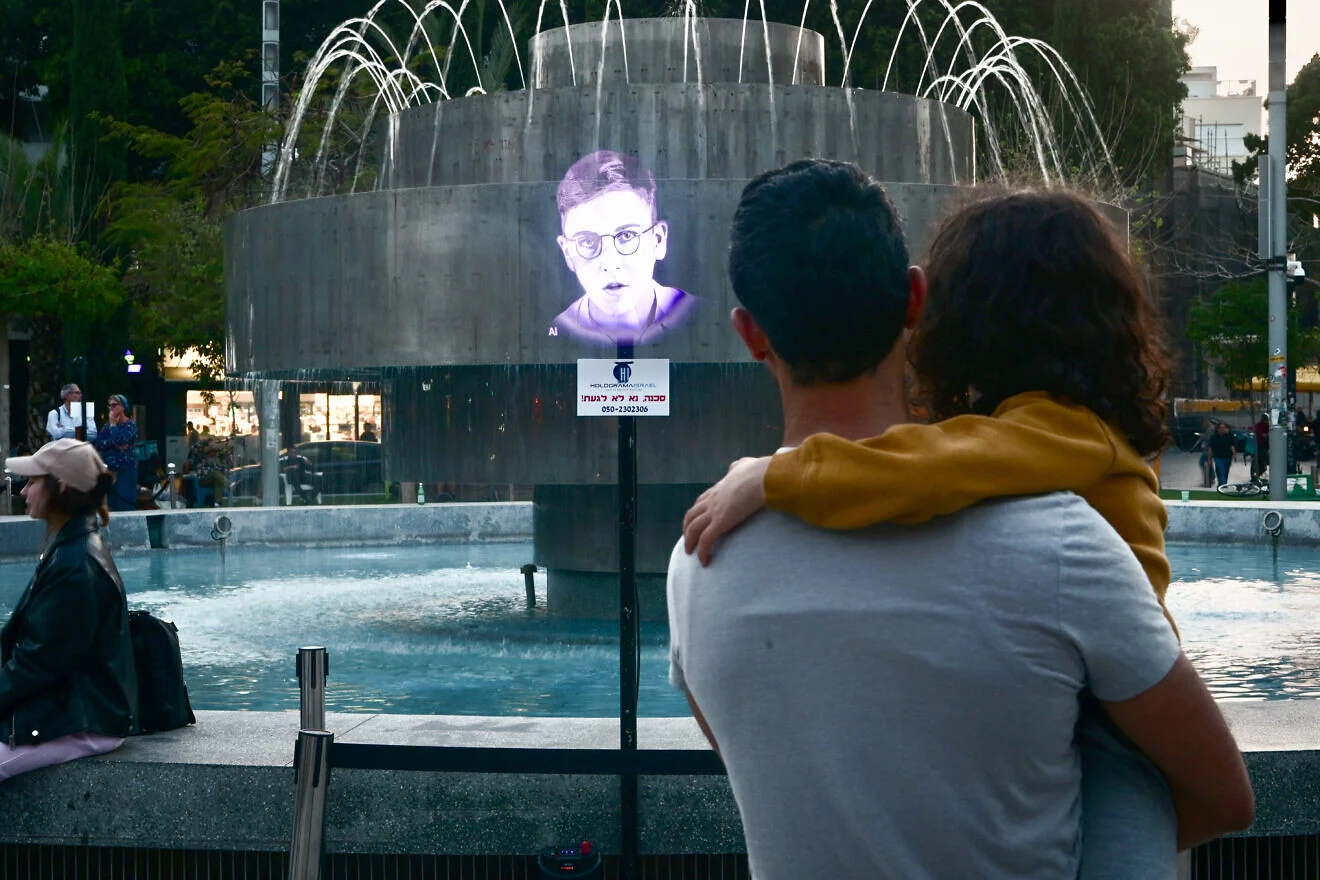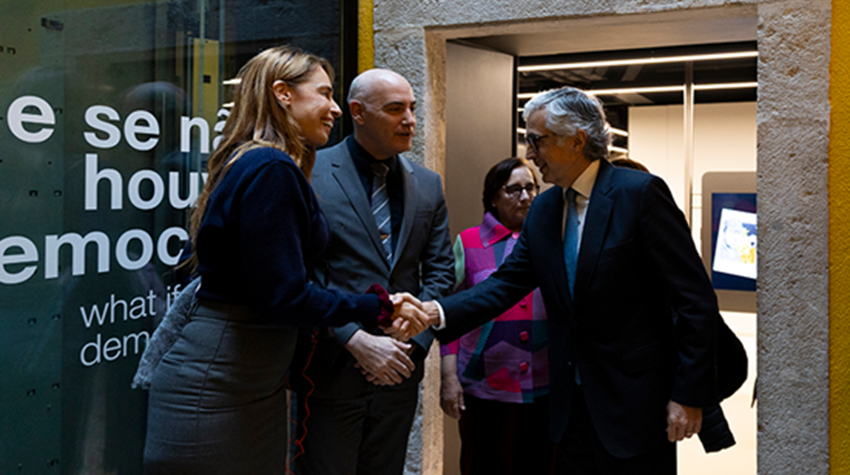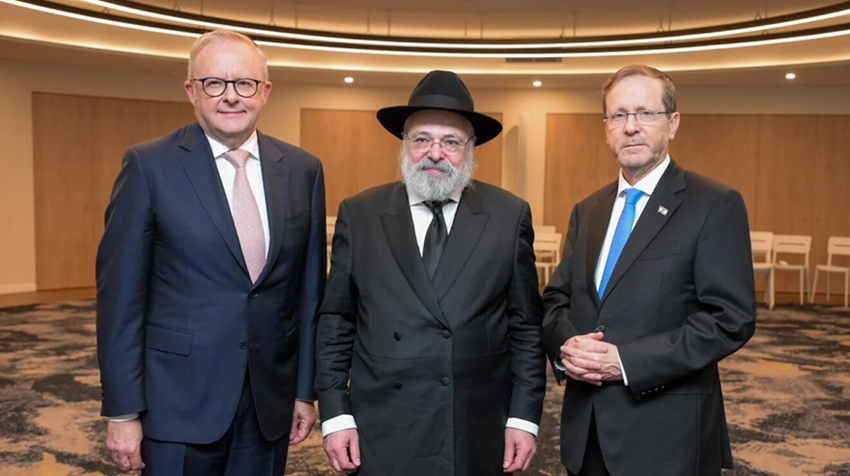Credit: Avshalom Sassoni/Flash90
A report that the Conference on Jewish Material Claims Against Germany published today about aging Holocaust survivors suggests “sobering insights into the future of this incredible community,” per the nearly 75-year-old nonprofit, which estimates that it will distribute about $530 million in compensation this year to Holocaust survivors worldwide, and $960 million for welfare needs of survivors.
Some 1,400 (.6%) of the estimated 220,800 survivors in 90 countries today are centenarians, and half of the survivors live in Israel, according to the Claims Conference. The median age of survivors is 87, and 61% are women, per the nonprofit.
The Claims Conference’s new report, titled Vanishing Witnesses: An Urgent Analysis of the Declining Population of Holocaust Survivors, projects that just half of Holocaust survivors worldwide will remain in six years, with just 30%, or about 66,250, remaining in 2035. By 2040, just 22,080 survivors will remain, according to the Claims Conference.
Mortality rates differ, per the nonprofit, with 39% of U.S. survivors (from 34,600 to 21,100) and 54% of survivors in former Soviet countries (from 25,500 to 11,800) expected to be lost by 2030. Israel, which has the most survivors (110,100, as of last October), is projected to lose 43% by 2030, dropping to 62,900.
“This report provides clear urgency to our Holocaust education efforts,” stated Gideon Taylor, president of the Claims Conference. “Now is the time to hear first-hand testimonies from survivors, invite them to speak in our classrooms, places of worship and institutions. It is critical, not only for our youth but for people of all generations to hear and learn directly from Holocaust survivors.”
“This report is a stark reminder that our time is almost up, our survivors are leaving us, and this is the moment to hear their voices,” Taylor said.
Greg Schneider, executive vice president of the Claims Conference, told JNS that “we need to know the data around survivors—where they live, poverty rates, the type of persecution that they endured—and then to project that into the future first and foremost so that we can secure the maximum amount of funding and benefits.”
“Survivors are living longer, and we need to plan for that even as we are helping it happen. There are 300 agencies around the world that we fund to provide services, and this data is essential as they plan the coming years,” Schneider.
It is also important to be realistic about “the inevitability of the loss of survivors” and to ensure “that institutions of memory and communities understand the projections,” according to Schneider.
“Overwhelmingly, Holocaust survivors are comforted to know that they and what they endured will be remembered. Demographic reports about trends, timelines and projections help to focus communal attention on these essential issues,” he told JNS. “In highlighting the fragility of the survivor community, if we are able to move even one person to spend more time with a survivor, realizing the limited opportunity, then for sure we have done some good.”
“We take every opportunity to emphasize to our young people that they’ll be the last in history to meet living Holocaust survivors,” he added. “We can’t squander those opportunities.”
Nechama Grossman, 110, who lives in Israel, is one of the oldest Holocaust survivors, according to her son, Vladimir Shvetz. “She lived through the worst of humanity, and she survived. She raised her children, her grandchildren, her great-grandchildren, to teach them that unchecked hatred cannot win,” Shvetz stated. “We must remember her story, remember the Holocaust, remember all the survivors. Learn from it so that her past does not become our future.”
Leonard Zaicescu, 98, is one of the last to survive the death train from Iasi, Romania. “As long as I am still alive and have strength, I will do everything I still can so that future generations will learn about what happened—the Iasi Massacre—and that it may become known in the memory of future generations,” he stated.
“It’s sobering to see exactly how few of us Holocaust survivors are left,” stated Pinchas Gutter, one of the last to survive the Warsaw Ghetto uprising.
“We have an important piece of history that only we hold and only we can tell. I hope, in the time we have, we can impart the learning from the Holocaust so that the world will never again have to endure that level of hate. I am a witness,” he stated. “Those of us witnesses still alive are working to make sure our testimonies are heard and preserved through any means possible.”
“We are counting on this generation to hear us and future generations to carry our experiences forward, so that the world does not forget,” he said.
Source: JNS


































